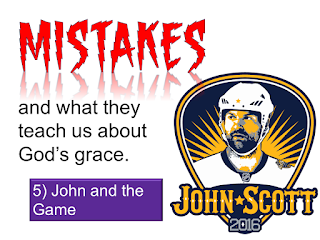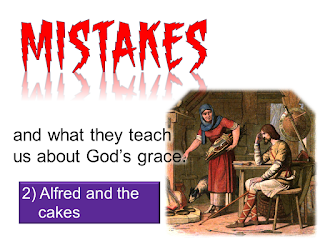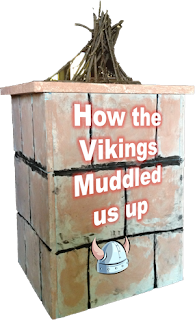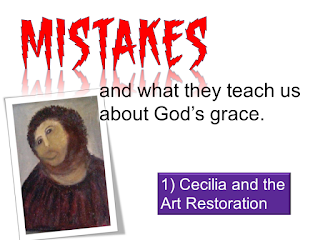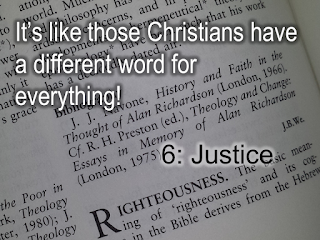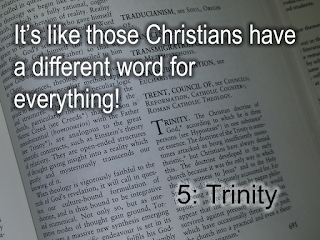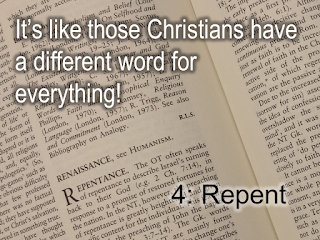St. Andrew's Stars Episode:
Hespeler, 13 March, 2016 © Scott McAndless – Lent 5
Isaiah 53, Luke 23:13-25, Psalm 22:14-24
E |
very year the National Hockey League, the NHL, pauses in middle of its season to celebrate its very best players. The All-Star game has always been a big fan favorite – a chance to celebrate the players that the fans love most. And, in January of this year, the league really needed a successful All-Star game as it found itself in the midst of a season that many fans seem to find rather uninspiring. Instead what it got was a bunch of really bad mistakes. And I know that you may not think that the story of an All-Star game has much to teach us about the Biblical truths, but I hope you’ll stay with me for a little bit here because I think that it can.
The first mistake that the NHL made was to include the fans in the selection process of the All-Star team. Now, that was not a new mistake this year. Fans have been helping to choose team members since 1985, but a lot has changed since way back then. Today fans are connected to each other through social media in ways that could never have been dreamed of back in 1985. And this year someone somewhere on the internet decided to disturb the NHL’s plans for a nice little, brand-boosting All-Star game.
A social media campaign was started to get people to vote John Scott onto the team under the hashtag, #VoteJohnScott. I’m not sure why someone started this campaign but it seems that people lashed onto it as a way to get back at the league for all kinds of reasons. Scott was a player who really had no business being on the team according to any regular measures. Some people have suggested that he had no business being in the NHL at all. Playing for the Arizona Coyotes this season, he has spent as much time in the minor AHL league as he has in the NHL. He had only played 11 major league games, scored no goals, had only one assist and spent about a half hour in the penalty box. An enforcer and big brawler on the ice, he seemed anything but a good representative of what is good in the game.
But the campaign really took off and before long Scott had not only got on the team but came in ahead of all the other top players. The fans made him captain of the Pacific Team. Clearly the NHL had made a mistake in letting the fans have the kind of power that they could use to sabotage the league’s plans. But it probably would have been alright if they had just left well enough alone. They did not.
The league (and I think that most people have blamed everyone’s favourite commissioner, Gary Bettman) decided that it would be too embarrassing to allow Scott to play. None of this is proven, mind you, but it seems that they tried any and all means to get him off the roster. They tried to bribe him to decline. They even went so far as to tell him that his children would be ashamed of him. When that didn’t work, they got mean. He was suddenly traded from Phoenix to Montreal and no sooner had he arrived that the Canadiens immediately sent him down to their minor league farm team in Newfoundland. The argument was that since he could no longer represent either the Coyotes or even the NHL because he no longer played for either.
So all of a sudden, in the middle of winter, Scott and his family are moved from hot and sunny Arizona and into exile in deepest darkest Newfoundland. But, I have to ask, what did John Scott do to deserve such treatment? He is, by all accounts, a really nice guy who loves hockey and loves his kids and is only dangerous if you meet him on the ice. He also didn’t make any mistakes. If anyone did, the league did. But it looked as if he and his family were going to be the only ones to pay the price.
But isn’t that the way it always goes. It is a story as old a human society. It is certainly as old as the Book of Isaiah. There are a series of passages in the Book of Isaiah that are sometimes called the Songs of the Suffering Servant. These songs are found in Isaiah 42, 49, 50 and 53. We read the final song of the Suffering Servant this morning.
All of these poems tell the story of an unnamed figure who is simply called the Servant of the Lord. This is a man, called to serve God in the world and to do much good and no wrong, who is nevertheless terribly abused over and over again. As it says in our reading this morning, “He was despised and rejected by others; a man of suffering and acquainted with infirmity; and as one from whom others hide their faces he was despised, and we held him of no account.”
In all likelihood, when the prophet talks about this figure, he is thinking about somebody he knows personally – someone in his nation whom he has seen God use to do good but who has been terribly mistreated. He may even be talking about himself, in a roundabout way, and how he has been abused despite being a prophet of God. But whoever the prophet was initially thinking about, there is something universal about his description of the Servant of the Lord. He is describing something that seems to have happened over and over again in the history of the world when a good person is unjustly punished for doing good.
Christians have taken these passages, for example, and applied them to the story of Jesus and his death upon the cross – and rightfully so – for there is no question that Jesus’ story is absolutely a working out of the same theme that is found in the Book of Isaiah. In fact, I would go so far as to say that the suffering and death of Jesus is the definitiveexample of somebody living out this pattern. Jesus lived out the universal story of the suffering servant more perfectly than anyone else in history both before and since. And, since the death of Jesus is an eternal event – an event whose impact far exceeds the moment in time when it happened – it is even possible to say that the Songs of the Suffering Servant in the Book of Isaiah are based on the story of Christ even though they were written long before his time. That is one of the things that it means when we call them prophecy.
But, as I say, the story of Jesus is just the most perfect example. It is far from the only one. And I told you the story of John Scott this morning because I also see it as an echo – perhaps a dim echo, but an echo nonetheless – of the same universal story. Of course, I would never suggest that Scott’s abuse was anywhere near what was suffered by Jesus or even what was suffered by Isaiah’s Suffering Servant. To suggest any sort of parity would be ridiculous. But Scott’s story is a reminder that nothing really changes in the world – the pattern remains the same. The powers of this world, whether they be kings or priests or commissioners or sports franchises, have their plans. And a key part of their plan is that they don’t really have to suffer for their own mistakes – they’ll always find a way to get someone else to pay the price. That’s what the John Scotts and the Suffering Servants and the Jesuses of Nazareth are for.
To give another rather egregious example from recent events, when Michigan State officials made the very serious mistake of choosing to save some money by drawing the City of Flint’s water from the terribly contaminated Flint River, who paid the price? Not the officials but the ordinary people of Flint who, for generations, are going to be dealing with the effects of lead poisoning.
But the best part of the universal story of the Suffering Servant is that it doesn’t end there. It doesn’t just end with John Scott finishing his career playing for the St. John’s IceCaps in the AHL. It doesn’t end with Jesus on the cross. If it did, we might get mad and enraged, but we would in no way see our need for justice satisfied.
Let me just quickly tell you how John Scott’s story ended. The fans didn’t buy the excuse that he couldn’t play in the All-Star Game because he was no longer in the NHL. They said, “We don’t care, let him play.” On twitter, the hashtag was #FreeJohnScott. The fans said it so loud and so insistently that the league really had no choice. And Scott went and he played as beautiful a game as he had ever played in his whole career. Everyone could see that he had made the game. Yet, despite that, the league wouldn’t put his name in on the ballots for Most Valuable Player. Do you think the fans cared about that?
No they did not. At the game they started chanting, “John Scott” and “MVP” and before you knew it, John Scott, despite not even being on the ballot at all, had taken the whole thing as a write-in candidate. All of this led to the most beautiful moment when Gary Bettman, commissioner of the NHL and the guy that most people blamed for the whole debacle, had to stand at centre ice and smile and pretend that he was happy as he handed John Scott a check for one million dollars.
I have heard people predict, in the midst of a rather unimpressive NHL season, that perhaps the one thing that people will look back on and see as the high point of 2015-16 season will be the All-Star game and it is all because of John Scott. We will see, of course, once we get into the post season, but I think that it might be true. John Scott, the guy that they tried to get rid of, may end up redeeming the entire season.
But, once again, I think that story is most interesting because it contains the merest echo of a story that matters on an eternal scale. Jesus was the ultimate victim of this world’s systems of power, privilege and domination. And they thought that they had beaten him – that they had put him exactly where they wanted him, upon a cross. But it was in the very moment of his defeat that, we believe, Jesus actually defeated the dark powers of this world. The truth of what Jesus accomplished for us is perfectly spelled out for us in the Book of Isaiah: “The righteous one, my servant, shall make many righteous, and he shall bear their iniquities. Therefore I will allot him a portion with the great, and he shall divide the spoil with the strong; because he poured out himself to death, and was numbered with the transgressors; yet he bore the sin of many, and made intercession for the transgressors.”
For that is how our God operates. Yes, the powers and authorities of this world will lay their plans. They will decide that they do not need to pay for their own mistakes, their own sins and their own errors. That is what the “little people” for. And they may even get away with it for a season. They may seem to thrive and get richer and stronger and feel ever more secure. But we have a God of justice. He will not let that stand forever.
But God has a particular way of making his justice work out in this world. He doesn’t necessarily go for that straightforward confrontation with the powers of this world. That kind of clash often doesn’t make things better and can often make things worse. God’s plan is to stand with the victims, the lost and neglected, those who are not allowed to prosper in this world. And God has a sense of humour – I’m sure of that, because he loves to use those very downtrodden and abused people and win the victory through them. Jesus showed us the absolute power of the seemingly powerless victim and he is the model for all the rest.
When this world has got you down. When you start to be discouraged and to believe that the weak will just continue to be used and robbed, hold one picture in your mind: John Scott holding that check at centre ice. Sure, but maybe even a better picture – one that gives the model to all the others – Jesus, taking on the powers of this dark world, doing it by dying before their very eyes. He wins, not just the battle, but the entire war.
This is the message of Easter – the message we get to celebrate in a couple of weeks. And it is a message that brings us hope by exposing the weakness and emptiness of this present world’s power system.
#TodaysTweetableTruth The powerful tried to make #Jesus pay for their #mistakes. Jesus, as #victim, exposes how empty this world’s power is.
